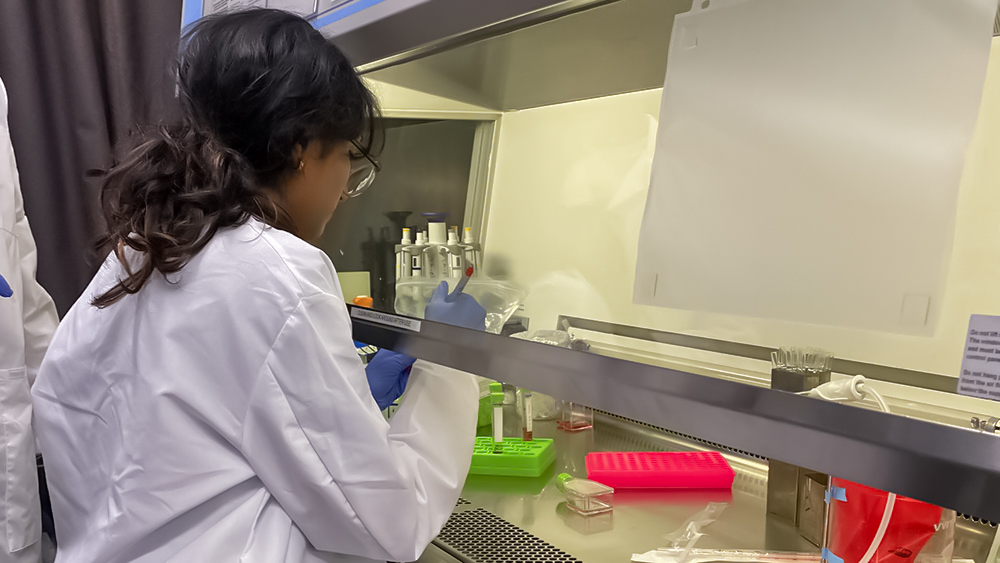
Three high school students from around the state of Texas spent this summer participating in a high-impact research experience at Texas A&M University through the U.S. Army Educational Outreach Program (AEOP) high school apprenticeship program.
Neha Adusumilli, Sabrina Hu and Richa Kalari had the opportunity to work in the NanoBio Systems Laboratory, which is directed by Dr. Arum Han, Texas Instruments Professorship II in the Department of Electrical and Computer Engineering at Texas A&M.
“Being able to meet and interact with many of the Ph.D. students around the lab opened up my mind to ideas and concepts that I didn't even think were possible,” Adusumilli said.
Kalari said that the most rewarding aspect of this summer program for her was being able to see her own ideas transformed into physical working devices with real-world applications.
Being able to meet and interact with many of the Ph.D. students around the lab opened up my mind to ideas and concepts that I didn't even think were possible.
The AEOP High School Apprenticeship Program connects high school students to a university or U.S. Army research laboratories and centers to spend the summer conducting cutting-edge research in state-of-the-art laboratory facilities. As part of this authentic science and engineering research apprenticeship program, high school students work one-on-one with a university researcher or U.S. Department of Defense scientist mentor.
“With this summer program, I felt a stronger connection to my love for science,” Adusumilli said. “I not only gained knowledge about microfluidics, but also about the out-of-the-box thinking required for research. This summer program inspired me to want to work in lab research in my future career.”
“Being able to provide hands-on experiences is one of the best ways to get students excited about science and engineering,” Han said. “These students are the future of our society advancing the forefront of technology. It was also very exciting for me to see them experiencing the fascinating world of microfluidics and lab-on-a-chip. Without the support from the U.S. Army, these activities would have not been possible, and I deeply appreciate their support.”
The AEOP Program is funded by a grant from the U.S. Army Research Office awarded through the Texas A&M Engineering Experiment Station, a state agency that solves problems through applied research and development, and collaboration with industry, government and academic partners.